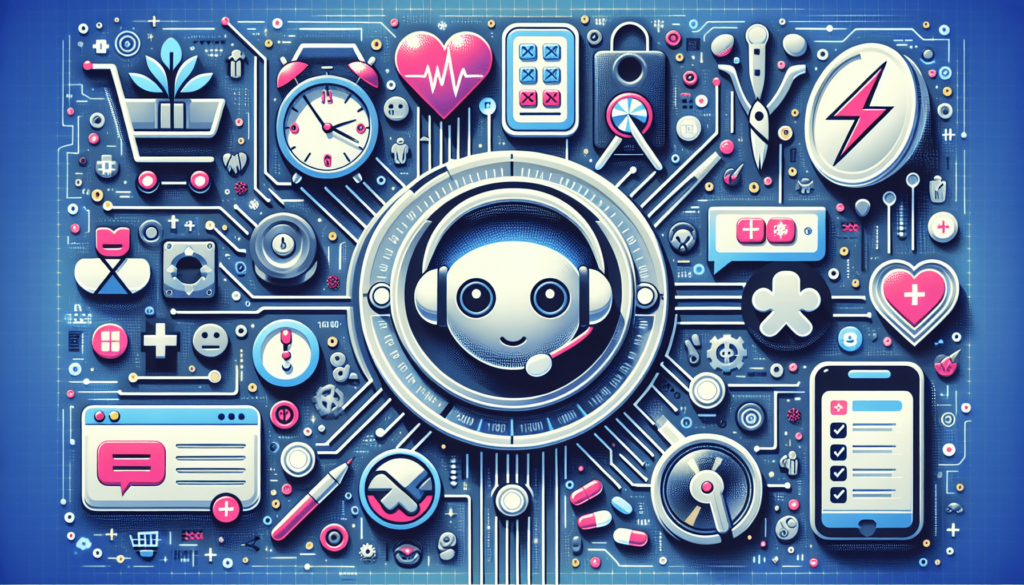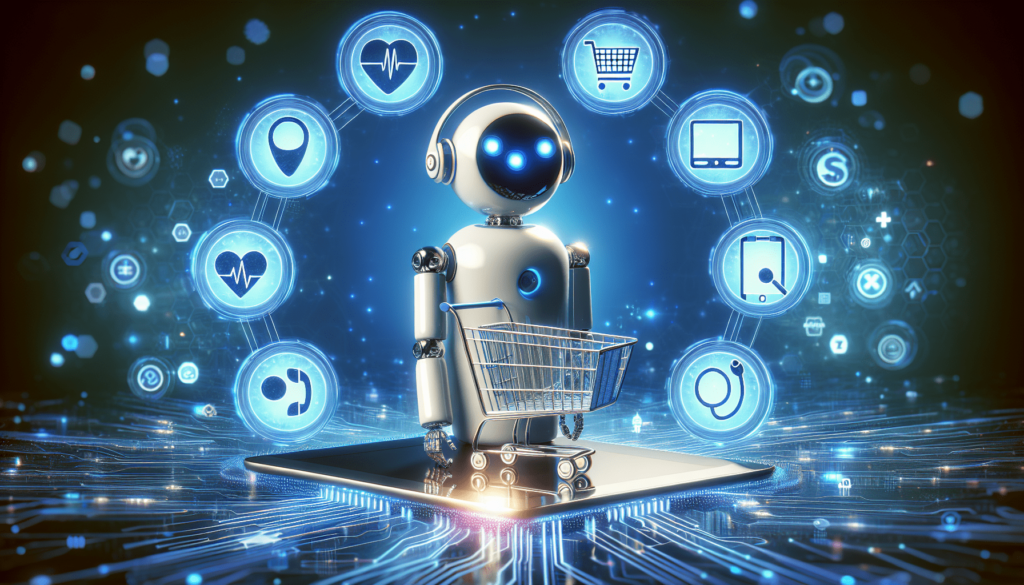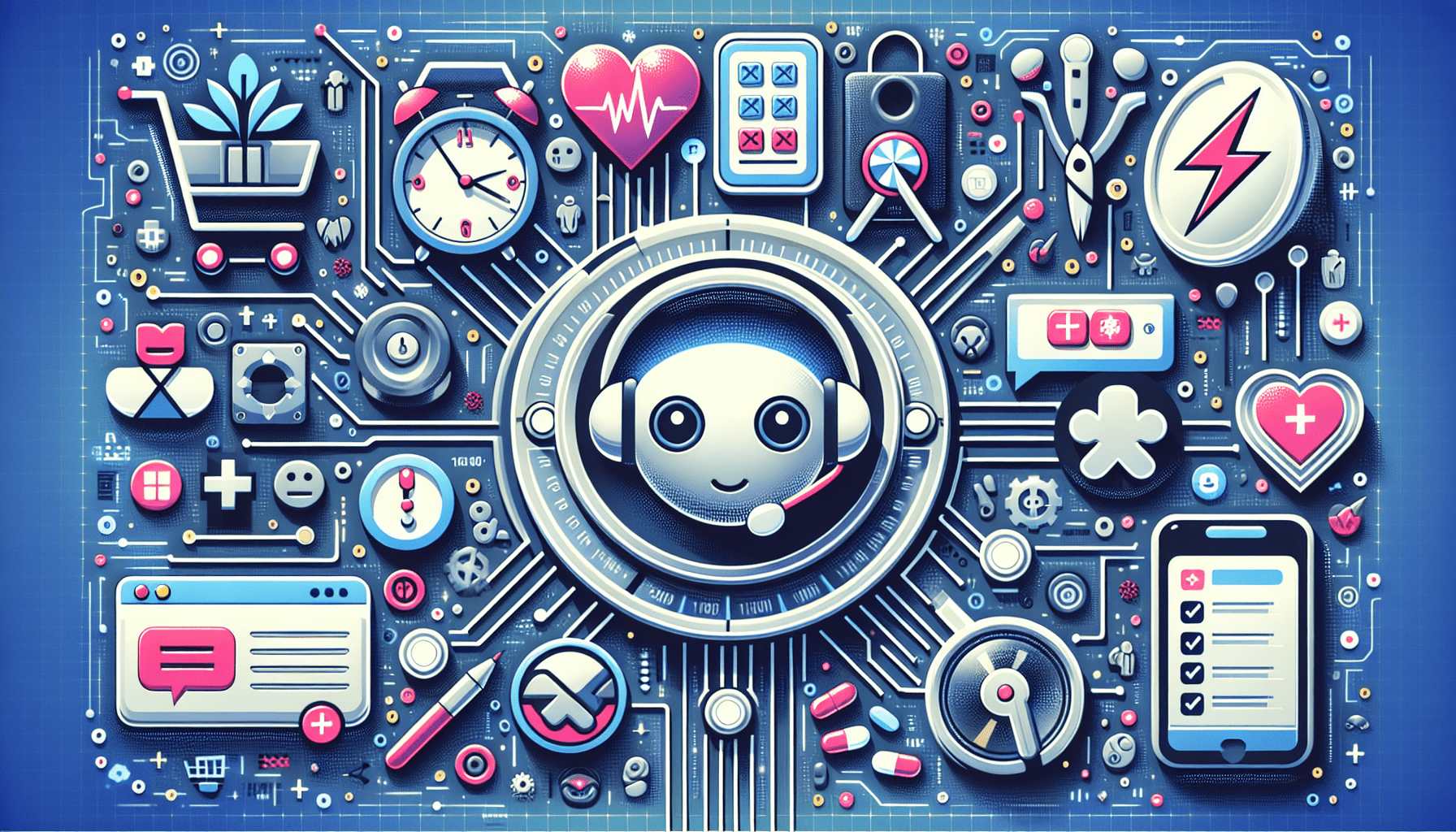AI chatbots have become a revolutionary tool in the world of technology, providing businesses with a means to enhance customer experiences and streamline operations. From assisting with customer support to automating repetitive tasks, these intelligent virtual assistants have proven their worth across various industries. In this article, we will explore some of the most intriguing use cases for AI chatbots, shedding light on how they have transformed the way we interact with technology and each other. Discover how these chatbots are making a significant impact and revolutionizing the way businesses operate in the digital age.

Customer Service
24/7 availability
AI chatbots are revolutionizing customer service by providing 24/7 availability. With an AI chatbot integrated into your website, customers can reach out for support at any time, regardless of business hours. This ensures that customers have access to assistance whenever they need it, without having to wait for human representatives to be available.
Handling FAQs
One of the primary functions of an AI chatbot is to handle frequently asked questions. By programming the chatbot with a database of answers to common inquiries, it can swiftly respond to customer queries and provide accurate information. This not only saves time for both customers and support representatives but also ensures consistent and reliable responses.
Handling simple tasks
AI chatbots excel at handling simple tasks that don’t require human intervention. For example, they can assist customers with account creation, password resets, and basic troubleshooting. By automating these processes, chatbots streamline customer self-service and free up human agents to focus on more complex and valuable interactions.
Seamless integration with website
AI chatbots can seamlessly integrate with your website, providing a smooth and interactive customer experience. They can be designed to match your brand’s aesthetics and incorporate key features like live chat, product recommendations, and order tracking. By blending seamlessly into your website, chatbots enhance user engagement and contribute to a positive customer journey.
Lead Generation
Qualifying leads
AI chatbots can play a crucial role in qualifying leads for your business. By engaging in conversations with potential customers, they can gather essential information to determine if a lead is genuinely interested and meets the criteria for conversion. This automated lead qualification process saves time and resources by prioritizing high-quality leads for your sales team.
Collecting contact information
When it comes to lead generation, collecting contact information is essential for follow-up and nurturing. AI chatbots can collect contact details such as names, email addresses, and phone numbers through interactive conversations. This eliminates the need for manual data entry and ensures accurate information is captured for further communication.
Ordering and Reservation
Placing orders
AI chatbots can simplify the ordering process for customers by allowing them to place orders directly through the chat interface. By guiding users through a series of questions, chatbots can gather order details such as product preferences, quantities, and shipping information. This automated ordering system enhances convenience and reduces friction in the buying process.
Making reservations
For businesses in the hospitality industry, AI chatbots can assist with making reservations. By integrating with booking systems, chatbots can check availability, provide options, and facilitate the reservation process. This saves time for customers and eliminates the need to navigate through multiple booking platforms.
Providing recommendations
AI chatbots can also offer personalized recommendations to customers based on their preferences and previous interactions. By analyzing data and understanding customer behavior, chatbots can suggest products or services that align with the individual’s needs and preferences. This adds value to the customer experience and increases the likelihood of upselling and cross-selling.
Personal Assistant
Scheduling appointments
AI chatbots can act as personal assistants by helping users schedule appointments. Whether it’s booking a meeting, setting up a consultation, or arranging a service, chatbots can streamline the scheduling process. By syncing with users’ calendars and availability, chatbots can suggest suitable time slots and even send calendar invites.
Setting reminders
With AI chatbots, users can rely on automated reminders for important events or tasks. Chatbots can send reminders through various channels like SMS, email, or push notifications, ensuring that users stay organized and never miss a deadline. This feature is particularly useful for time-sensitive obligations or recurring commitments.
Sending notifications
AI chatbots can also serve as a communication channel for sending notifications and updates to users. Whether it’s a delivery status, order confirmation, or important announcements, chatbots can efficiently distribute this information. By sending real-time notifications, chatbots keep users informed and engaged, enhancing overall satisfaction.

Healthcare Assistance
Providing medical information
AI chatbots have significant potential in the healthcare sector by providing accurate and reliable medical information. Chatbots can answer general health inquiries, provide symptom assessments, and offer preventive care advice. This helps users make informed decisions about their health and reduces unnecessary visits to healthcare providers.
Answering common health questions
Patients often have common health questions that can be addressed by AI chatbots. By programming chatbots with a comprehensive database of medical knowledge, they can provide quick and accurate responses to inquiries about symptoms, treatments, medications, and more. This saves time for both healthcare professionals and patients, enabling more efficient healthcare delivery.
Monitoring medication schedules
AI chatbots can also assist in monitoring and managing medication schedules for patients. By sending reminders and tracking adherence, chatbots can ensure that individuals take their prescribed medications on time. This helps prevent missed doses, improves patient compliance, and ultimately leads to better health outcomes.
Education and Training
Answering student queries
AI chatbots can support students by answering their queries related to coursework, assignments, and educational resources. By providing immediate and accurate responses, chatbots help students overcome hurdles and enhance their learning experience. This on-demand support can be especially valuable for online learning platforms and distance education programs.
Delivering learning materials
Chatbots can deliver learning materials such as lecture notes, study guides, and additional resources directly to students. By analyzing their learning preferences and progress, chatbots can suggest relevant materials that cater to individual needs. This personalized approach to content delivery enhances student engagement and promotes effective learning.
Providing feedback
AI chatbots can provide instant feedback to students on assignments and assessments. By analyzing responses and following predetermined criteria, chatbots can evaluate student work and provide constructive feedback in real-time. This automated grading process saves instructors time and provides students with immediate insights for improvement.
HR Support
Answering employee questions
AI chatbots can assist HR departments by answering frequently asked questions from employees. Whether it’s inquiries about company policies, benefits, or procedures, chatbots can provide quick and accurate responses. This reduces the workload on HR professionals, allowing them to focus on more strategic aspects of their roles.
Assisting with onboarding process
AI chatbots can streamline the onboarding process for new employees by providing essential information and guidance. From filling out paperwork to understanding key company policies, chatbots can guide new hires through the necessary steps. This ensures a consistent and efficient onboarding experience for all employees.
Providing policy information
AI chatbots can serve as a central source of information for company policies, eliminating the need for employees to search through manuals or ask HR representatives. By providing easy access to policy information, chatbots promote transparency and ensure that employees have accurate and up-to-date knowledge.
E-commerce Support
Assisting with product selection
AI chatbots can assist customers in selecting the right products that meet their needs. By analyzing customer preferences, purchase history, and other relevant data points, chatbots can suggest personalized recommendations. This enhances the shopping experience, increases customer satisfaction, and contributes to higher conversion rates.
Providing shipping and delivery information
AI chatbots can provide customers with real-time updates on shipping and delivery statuses. By integrating with logistics systems, chatbots can retrieve tracking information and provide accurate estimates. This proactive communication allows customers to stay informed and plan accordingly, minimizing frustration and improving post-purchase experience.
Handling returns and refunds
With AI chatbots, customers can easily initiate returns and refunds without the need for extensive manual processes. Chatbots can guide users through the necessary steps, gather required information, and provide instructions for returning products. This automated returns management process enhances convenience for customers and improves overall satisfaction.
Travel Assistance
Booking flights and accommodations
AI chatbots can streamline the travel booking process by assisting customers with booking flights, accommodations, and other travel services. By integrating with travel APIs and databases, chatbots can provide real-time availability and pricing information. This automated booking system saves customers time and effort while ensuring a seamless experience.
Providing travel recommendations
AI chatbots can suggest destinations, attractions, and activities based on customer preferences and travel history. By analyzing data and understanding customer interests, chatbots can offer personalized travel recommendations that align with individual tastes. This enhances the travel planning process and provides customers with tailored suggestions.
Assisting with itinerary planning
AI chatbots can assist travelers with itinerary planning, helping them organize their trips efficiently. By providing information on suggested routes, transportation options, and timings, chatbots can ensure that travelers make the most of their time and experience a hassle-free journey. This personalized itinerary assistance adds value to the overall travel experience.
Social Media Engagement
Addressing customer queries and complaints
AI chatbots can monitor and address customer queries and complaints on social media platforms. By analyzing keywords and context, chatbots can provide timely responses and direct users to appropriate resolutions. This real-time support demonstrates responsiveness, improves customer satisfaction, and helps maintain a positive brand reputation.
Providing real-time support
AI chatbots can offer real-time support on social media by engaging in conversations with customers. Whether it’s providing product information, assisting with troubleshooting, or resolving issues, chatbots can handle diverse inquiries. This immediate support improves customer experience and fosters positive engagement on social media channels.
Collecting customer feedback
AI chatbots can collect customer feedback through interactive conversations on social media. By conducting surveys and asking relevant questions, chatbots can gather valuable insights to gauge customer satisfaction and identify areas for improvement. This feedback-driven approach enhances the customer-centricity of businesses and helps drive continuous improvement.
In conclusion, AI chatbots have a wide range of use cases across various industries and functions. From enhancing customer service to streamlining business processes, chatbots offer significant advantages in terms of efficiency, convenience, and personalized experiences. By leveraging the power of artificial intelligence, businesses can leverage AI chatbots to stay ahead of the competition and deliver exceptional services to their customers.


Comments are closed